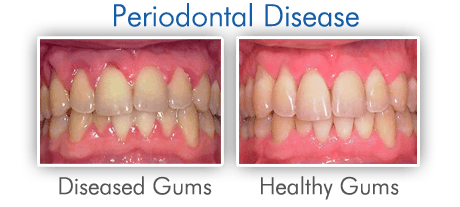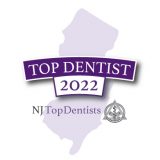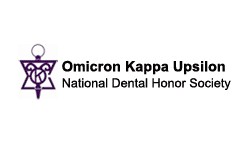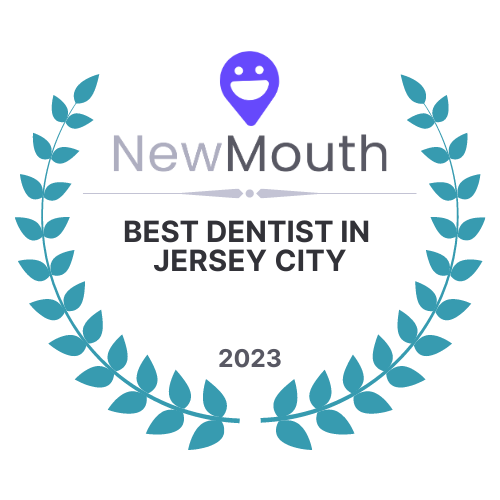Periodontics

The term “periodontal”means “around the tooth.” Periodontal disease (also known as periodontitis and gum disease) is a common inflammatory condition which affects the supporting and surrounding soft tissues of the tooth; also the jawbone itself when in its most advanced stages.
Periodontal disease is most often preceded by gingivitis which is a bacterial infection of the gum tissue. A bacterial infection affects the gums when the toxins contained in plaque begin to irritate and inflame the gum tissues. Once this bacterial infection colonizes in the gum pockets between the teeth, it becomes much more difficult to remove and treat. Periodontal disease is a progressive condition that eventually leads to the destruction of the connective tissue and jawbone. If left untreated, it can lead to shifting teeth, loose teeth and eventually tooth loss.
Periodontal disease is the leading cause of tooth loss among adults in the developed world and should always be promptly treated.
Types of Periodontal Disease
When left untreated, gingivitis (mild gum inflammation) can spread to below the gum line. When the gums become irritated by the toxins contained in plaque, a chronic inflammatory response causes the body to break down and destroy its own bone and soft tissue. There may be little or no symptoms as periodontal disease causes the teeth to separate from the infected gum tissue. Deepening pockets between the gums and teeth are generally indicative that soft tissue and bone is being destroyed by periodontal disease.
Here are some of the most common types of periodontal disease:
• Chronic periodontitis – Inflammation within supporting tissues cause deep pockets and gum recession. It may appear the teeth are lengthening, but in actuality, the gums (gingiva) are receding. This is the most common form of periodontal disease and is characterized by progressive loss of attachment, interspersed with periods of rapid progression.
• Aggressive periodontitis – This form of gum disease occurs in an otherwise clinically healthy individual. It is characterized by rapid loss of gum attachment, chronic bone destruction and familial aggregation.
• Necrotizing periodontitis – This form of periodontal disease most often occurs in individuals suffering from systemic conditions such as HIV, immunosuppression and malnutrition. Necrosis (tissue death) occurs in the periodontal ligament, alveolar bone and gingival tissues.
• Periodontitis caused by systemic disease – This form of gum disease often begins at an early age. Medical condition such as respiratory disease, diabetes and heart disease are common cofactors.
Treatment for Periodontal/Gum Disease
There are many surgical and nonsurgical treatments the periodontist may choose to perform, depending upon the exact condition of the teeth, gums and jawbone. A complete periodontal exam of the mouth will be done before any treatment is performed or recommended.
Here are some of the more common treatments for periodontal disease:
• Scaling and root planing – In order to preserve the health of the gum tissue, the bacteria and calculus (tartar) which initially caused the infection, must be removed. The gum pockets will be cleaned and treated with antibiotics as necessary to help alleviate the infection. A prescription mouthwash may be incorporated into daily cleaning routines.
• Tissue regeneration – When the bone and gum tissues have been destroyed, regrowth can be actively encouraged using grafting procedures. A membrane may be inserted into the affected areas to assist in the regeneration process.
• Pocket elimination surgery – Pocket elimination surgery (also known as flap surgery) is a surgical treatment which can be performed to reduce the pocket size between the teeth and gums. Surgery on the jawbone is another option which serves to eliminate indentations in the bone which foster the colonization of bacteria.
• Dental implants – When teeth have been lost due to periodontal disease, the aesthetics and functionality of the mouth can be restored by implanting prosthetic teeth into the jawbone. Tissue regeneration procedures may be required prior to the placement of a dental implant in order to strengthen the bone.
For more information on periodontics in West New York or to schedule an appoint, please call (201) 662-1922 or click here to request an appointment.
CONTACT US
* Call for availability.
Testimonials
West New York
Location: Kennedy Blvd
4914 Kennedy Blvd Ste 201, West New York NJ 07093
We are conveniently located on Kennedy Blvd in Taffaro Plaza and next to Light Rail Station. Located at the border of West New York, Union City, North Bergen
Serving residents of Hudson County and Bergen County.
We provide the following services
- gum disease
- gum surgery
- bad breath
- gingivitis
- bleeding gums
- cavities
- dental emergency
- dental implants
- abscessed tooth
- sensitive tooth
- missing tooth
- chipped tooth
- cracked tooth
- crooked teeth
- veneers
- clear braces (Invisalign)
Have a tooth ache or a dental emergency? We are open Saturdays to take care of your dental emergencies. We are most trusted and highly rated dental office in West New York and Hudson County!
Copyright by Hudson Dental Center (West New York NJ) 2024. All rights reserved.




